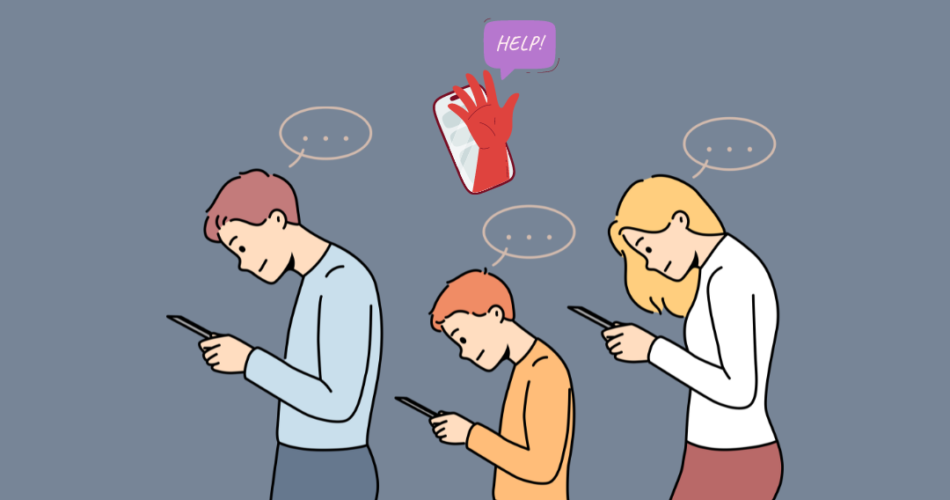Have you ever found yourself reaching for your smartphone the moment you wake up, or do you feel a pang of anxiety when you can’t find your device? Seems we are all on the same page. With digital age, smartphones have become an integral part of our lives, but this convenience often comes at a cost. In this article, we’ll delve into the psychological factors behind smartphone addiction, exploring why everyone’s so hooked and what we can do about it.
Why Are We So Addicted to Our Smartphones?
The Dopamine Effect
Every time you receive a notification, your brain gets a little hit of dopamine, the “feel-good” neurotransmitter. This surge of pleasure encourages you to repeat the action, creating a cycle of reward-seeking behavior. Over time, these small bursts of happiness can lead to dependency, making it harder to put your phone down.
Social Validation
Humans are inherently social creatures. Social media platforms, messaging apps, and even simple texts offer instant validation and a sense of belonging. The likes, comments, and shares act as social rewards, reinforcing our behavior and driving us to stay connected constantly.
Fear of Missing Out (FOMO)
The fear of missing out is a powerful motivator. We don’t want to miss an important message, a trending topic, or an event that everyone is talking about. This fear keeps us glued to our screens, checking our phones frequently to stay in the loop.
How Smartphone Addiction Affects Our Lives
Mental Health
Excessive smartphone use is linked to anxiety, depression, and stress. Constant notifications and the pressure to stay connected can overwhelm our brains, leading to mental fatigue and burnout.
Physical Health
Staring at screens for long periods can cause eye strain, poor posture, and sleep disturbances. The blue light emitted by screens can interfere with our sleep cycles, making it harder to fall asleep and stay asleep.
Productivity
Smartphone addiction can significantly impact productivity. The constant distractions can make it challenging to focus on tasks, leading to decreased efficiency and performance both at work and in personal projects.
Strategies to Combat Smartphone Addiction
Know your Boundaries
Create specific times during the day when you are allowed to check your phone. For example, avoid using your phone during meals or before bedtime. Setting these boundaries can help reduce your screen time and encourage more mindful use.
Educate yourself through Stayaway App’s blog articles.
There are numerous topics such as Productivity, Smartphone Addiction, Health, Social Media Detox, Mindfulness, Meditation, Psychology which we have discussed across. Subscribe for more and find yourself a valuable read.
Practice Digital Detox
Dedicate time to disconnect from your phone completely. Start with small intervals, like an hour a day, and gradually increase the time. Use this time to engage in other activities such as reading, exercising, or spending quality time with loved ones.
Seek Support
If smartphone addiction is significantly impacting your life, don’t hesitate to seek professional help. Therapists and counselors can provide strategies and support to help you manage your dependency.
Take away
Understanding the psychology behind smartphone addiction is the first step toward regaining control over our digital lives. By recognizing the triggers and effects of our smartphone use, we can implement strategies to create healthier habits. Remember, it’s all about balance. Your smartphone can be a tool for productivity and connection, but it shouldn’t control your life.
